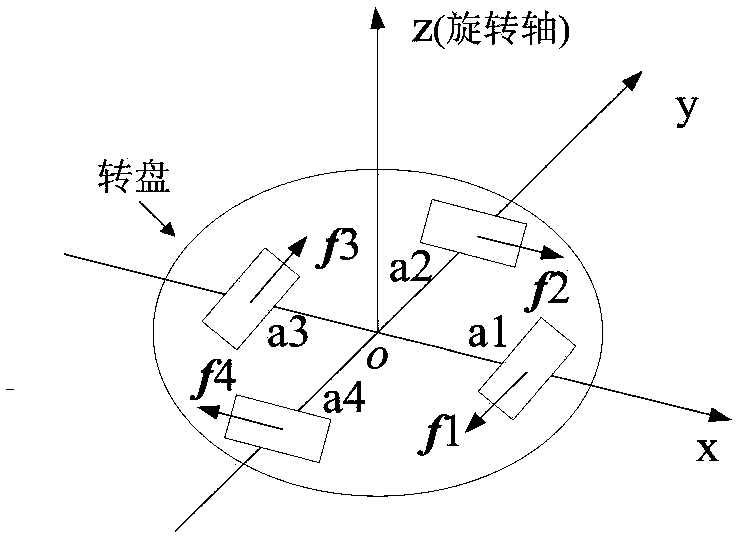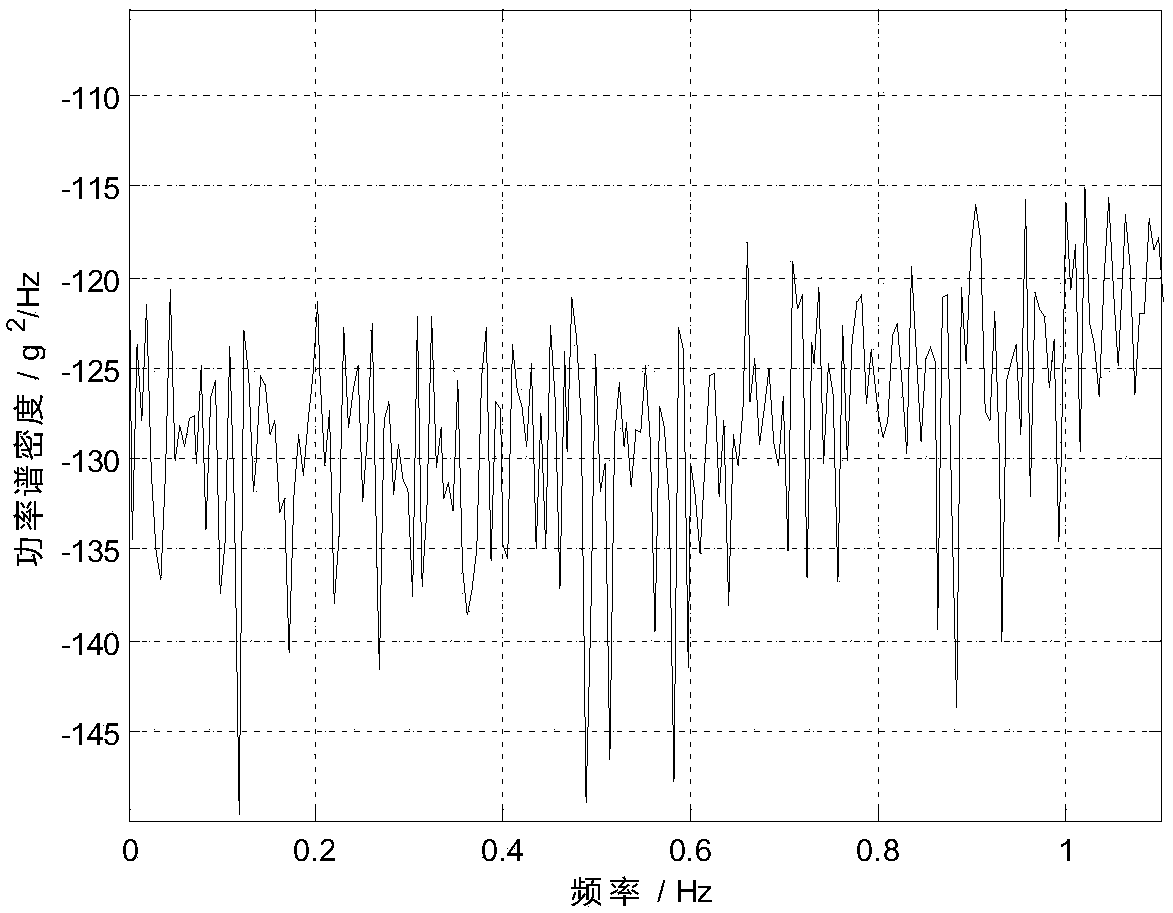Gravity gradient sensor speed selection method based on inertial technology
A gravity gradient and sensor technology, applied in the direction of instruments, scientific instruments, and gravitational field measurement, can solve problems such as frequency leakage, inability to find noise energy, inability to identify noise patterns, etc., and achieve the effect of improving measurement resolution
- Summary
- Abstract
- Description
- Claims
- Application Information
AI Technical Summary
Problems solved by technology
Method used
Image
Examples
Embodiment Construction
[0021] Embodiments of the present invention are described in further detail below in conjunction with the accompanying drawings:
[0022] A speed selection method for gravity gradient sensors based on inertial technology, such as Figure 4 shown, including the following steps:
[0023] Step 1, use the power spectral density analysis method to analyze and process the combined signal of the static accelerometer, and obtain the following figure 2 The shown accelerometer body noise power spectral density diagram; from the accelerometer body noise power spectral density diagram, the noise energy distribution at the low frequency of the static accelerometer combined signal is obtained, thereby determining the frequency interval at which the noise energy at the low frequency is smaller;
[0024] In this embodiment, it can be seen from the power spectral density diagram of the accelerometer body noise that the static accelerometer combined signal noise floor is approximately equival...
PUM
 Login to View More
Login to View More Abstract
Description
Claims
Application Information
 Login to View More
Login to View More - R&D Engineer
- R&D Manager
- IP Professional
- Industry Leading Data Capabilities
- Powerful AI technology
- Patent DNA Extraction
Browse by: Latest US Patents, China's latest patents, Technical Efficacy Thesaurus, Application Domain, Technology Topic, Popular Technical Reports.
© 2024 PatSnap. All rights reserved.Legal|Privacy policy|Modern Slavery Act Transparency Statement|Sitemap|About US| Contact US: help@patsnap.com










